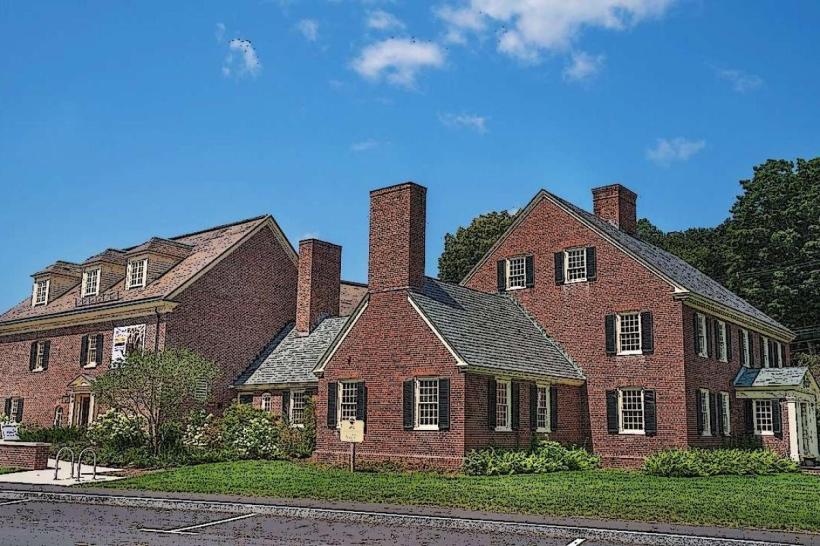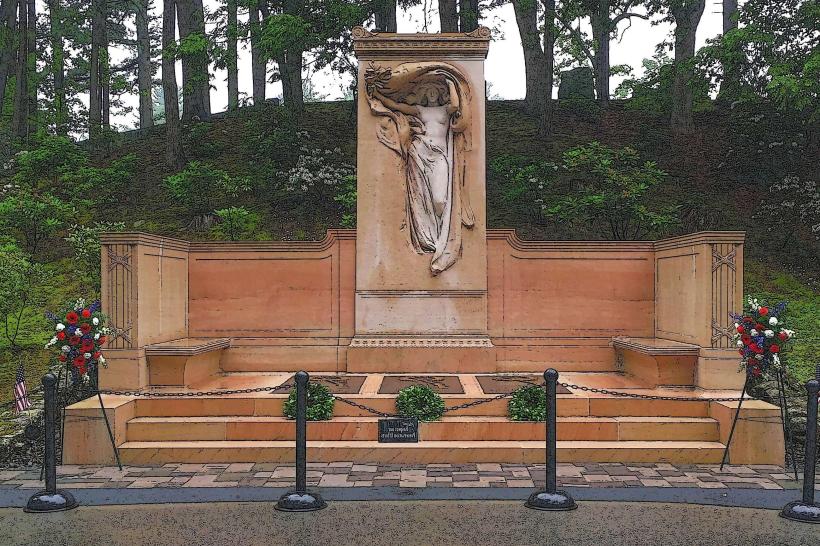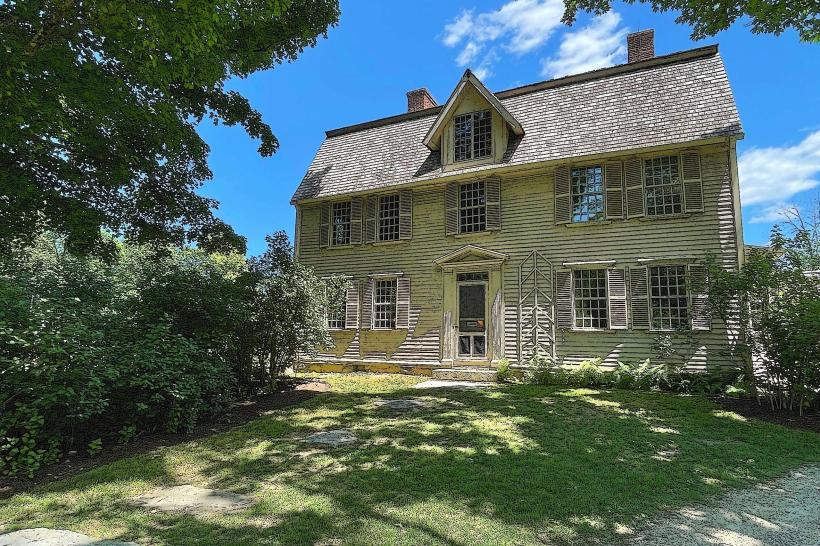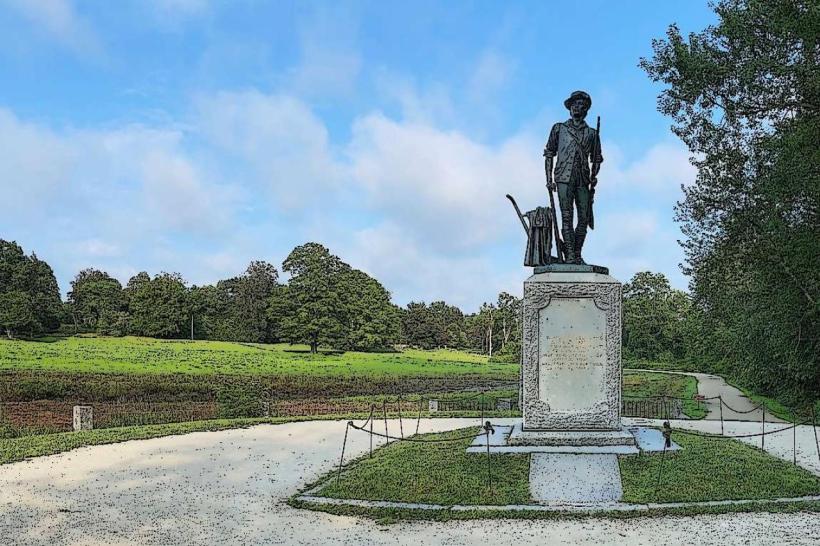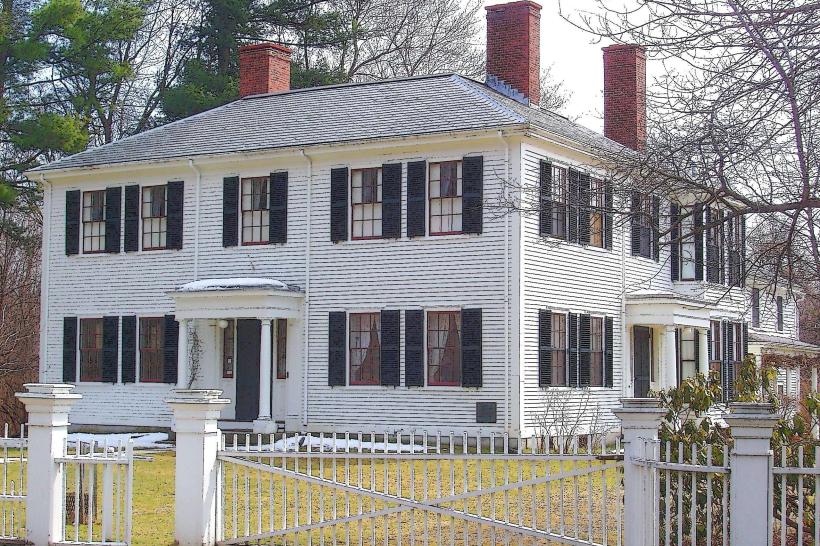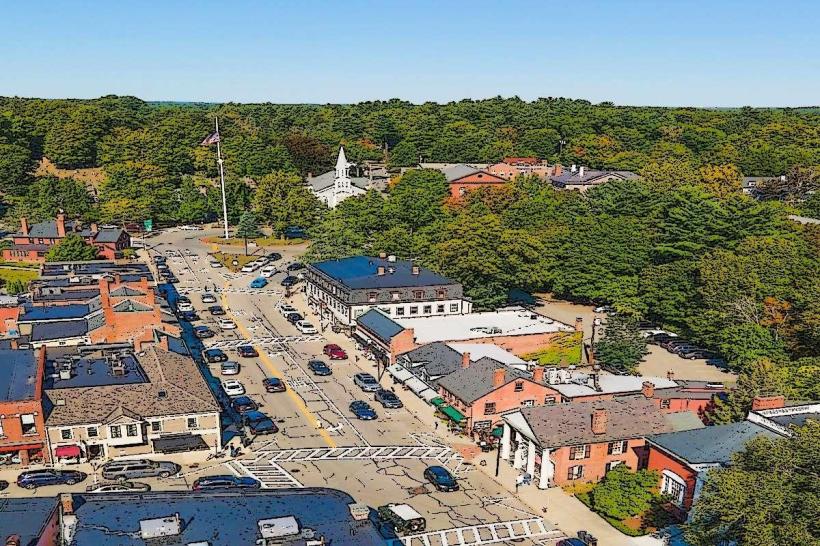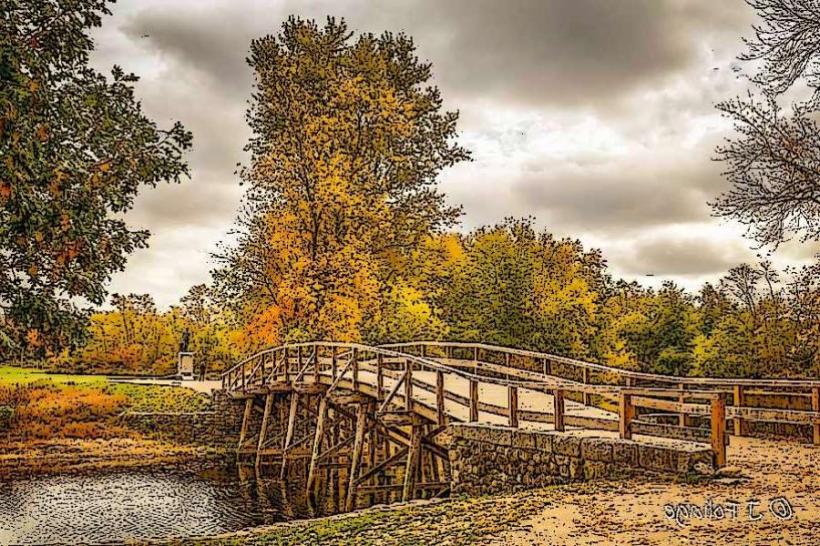Information
Landmark: Orchard HouseCity: Concord
Country: USA Massachusetts
Continent: North America
Orchard House, Concord, USA Massachusetts, North America
Orchard House, located at 399 Lexington Road in Concord, Massachusetts, is a historically and culturally significant site primarily known as the family home of Louisa May Alcott, one of America’s most beloved authors. It is famously the place where Louisa wrote her classic novel Little Women in 1868, a book that has since become a cornerstone of American literature. The house stands not only as a physical reminder of the Alcott family’s life but also as a window into 19th-century American social history, literature, and the intellectual movements of the time.
Historical Background and Architecture
The house itself dates back to the late 17th or early 18th century, built sometime between 1690 and 1720. Originally a simple two-story farmhouse, it underwent significant modifications when the Alcott family purchased it in 1857. Amos Bronson Alcott, Louisa’s father and a noted educator and Transcendentalist thinker, bought the property for $945. Upon acquisition, Bronson Alcott expanded the home by physically moving a smaller tenant house and attaching it to the main farmhouse, thereby creating a larger, more complex structure. This architectural modification resulted in a distinctive layout, including a long narrow hallway that connected the two parts of the house.
The name “Orchard House” was inspired by the 12-acre apple orchard that surrounded the property at the time, symbolizing the rural charm and natural beauty of Concord. The house’s exterior retains much of its colonial character, with simple clapboard siding, traditional window designs, and a gable roof that reflects New England farmhouse style. Inside, the structure preserves many period details, from the woodwork to the fireplaces, reflecting the 19th-century domestic environment.
The Alcott Family and Intellectual Life
The Alcotts were deeply embedded in the intellectual and cultural fabric of Concord, Massachusetts, a hub for the Transcendentalist movement during the mid-1800s. Transcendentalism emphasized individual conscience, self-reliance, and a deep connection to nature, and it attracted thinkers like Ralph Waldo Emerson, Henry David Thoreau, and Nathaniel Hawthorne, many of whom were friends and neighbors of the Alcotts.
Amos Bronson Alcott was an educator and philosopher who ran progressive schools and encouraged his children’s intellectual growth. The family environment at Orchard House was one of lively discussion, creative experimentation, and social activism. They welcomed visitors from Concord’s literary and philosophical circles, making the house a kind of informal salon for ideas and debate.
Louisa May Alcott’s experiences living in this vibrant setting deeply influenced her writing. The characters in Little Women were inspired by her own family: Jo March is based on Louisa herself, Meg on her older sister Anna, Beth on her sister Elizabeth, and Amy on her youngest sister, May. The book’s themes of family, personal growth, and moral development reflect the values the Alcotts practiced and preached.
Literary Legacy and Louisa May Alcott’s Work at Orchard House
Louisa wrote Little Women while living in Orchard House, specifically at a small “shelf desk” that her father built for her in her bedroom. This piece of furniture remains preserved in the house today. The novel was groundbreaking for its time, offering a realistic portrayal of young women’s lives and their struggles for independence, education, and self-expression within the confines of a patriarchal society.
The success of Little Women catapulted Louisa to national fame, securing her place in American literary history. She went on to write several sequels and other works, but Orchard House remains most closely associated with her early literary career and the origins of her most famous novel.
Preservation and Museum Status
After Louisa’s death, Orchard House faced the risk of falling into disrepair or being lost to development. In 1911, a group of Concord women, deeply committed to preserving Louisa May Alcott’s legacy, founded the Concord Women’s Club with the express purpose of saving the house and converting it into a museum.
The house officially opened to the public as a museum on May 27, 1912. The Concord Women’s Club has since meticulously maintained the property, focusing on preserving its historical authenticity. Approximately 75% of the furnishings currently on display are original pieces that belonged to the Alcott family. These include furniture, books, personal items, and household objects that provide an intimate glimpse into their daily lives.
The interiors have been restored and maintained to reflect the period’s style and domestic atmosphere. Visitors can explore the parlor, dining room, kitchen, and bedrooms, each room telling a different aspect of the family’s story. The dining room, for example, features the table where the Alcott family gathered and where some of the earliest readings of Little Women occurred. The kitchen and servant quarters reveal the workings of a mid-19th-century household, including details about cooking methods, food storage, and domestic help.
Educational and Cultural Role Today
Orchard House today operates as a museum dedicated to both Louisa May Alcott’s literary contributions and the broader historical context of the 19th century. It offers guided tours led by knowledgeable docents who share stories about the Alcotts’ lives, their friends, and the cultural environment of Concord during the Transcendentalist era.
The museum also hosts educational programs aimed at students and literary enthusiasts, including workshops, lectures, and special exhibitions that explore themes from Little Women as well as the Alcott family’s activism, particularly their work in abolitionism, women’s rights, and social reform.
Special events throughout the year celebrate Louisa May Alcott’s birthday, anniversaries related to the book, and historical commemorations tied to Concord’s rich cultural heritage.
Visitor Experience
Visitors to Orchard House can expect an immersive experience that transports them to the mid-1800s. The house is furnished and decorated to create an authentic atmosphere, enhanced by period-appropriate artifacts and Alcott family memorabilia. The tours typically last about 45 minutes to an hour, offering a blend of architectural history, literary context, and personal stories about the Alcott family’s daily life.
The museum shop offers books, replicas, and souvenirs related to Louisa May Alcott and Little Women, allowing visitors to take home a piece of this literary heritage.
Orchard House is open year-round, with exceptions for major holidays, and is an essential destination for anyone interested in American literature, women’s history, and the cultural movements of the 19th century. The preservation of Orchard House ensures that Louisa May Alcott’s legacy remains alive, inspiring new generations through her writing and the story of her family home.

